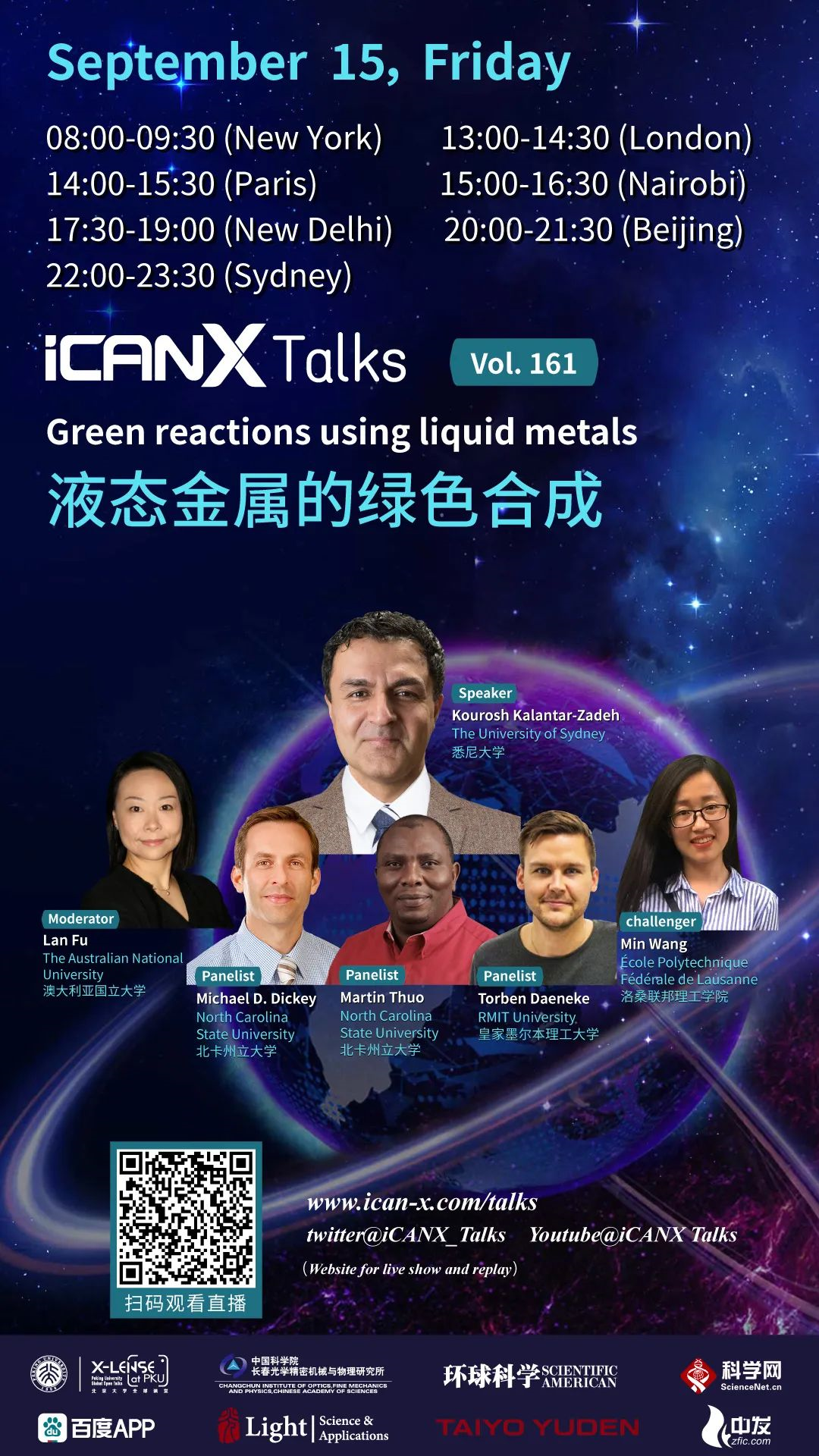Speaker: Kourosh Kalantar-Zadeh, The University of Sydney
Time: 20:00-21:30 p.m., September 15, 2023, GMT+8
Venue: Scan the QR code to watch online
Abstract:
Low-melting-point liquid metals possess less studied chemistry and physics. While these molten metals offer extraordinary potential for catalysis and enabling low-energy reactions, our understanding of their capabilities remains relatively rudimentary, and their primary applications are largely constrained to specific fields. This presentation introduces innovative concepts showcasing the contributions of liquid metals to the realm of eco-friendly reactions and catalysis. The discussion encompasses the synergistic fusion of metallurgy with liquid metals to harness distinctive advantages for creating highly reactive metallic compounds in liquid states. Emphasis is placed on the utilisation of alloying, capitalising on interfacial layering, surface competition or crystallisation of added components, or exploiting the active surface of liquid metals as reaction media. The presentation explores how liquid metals can serve as a platform for generating highly reactive species, facilitating reactions at reduced energy levels, and functioning as electrochemical catalysts and converters. Furthermore, the potential transformative impact of liquid metal systems in the creation of solid catalysts and dynamic reconfiguration of surfaces for liquid catalysis, driven by high entropy, is discussed. All of these aspects are poised to significantly influence future advancements in chemical and environmental technologies.
Biography:
Kourosh Kalantar-Zadeh is a Professor and Head of School of Chemical and Biomolecular Engineering at the University of Sydney. He is also one of the Australian Research Council Laureate Fellows of 2018. Professor Kalantar-Zadeh was a professor of Chemical Engineering at UNSW, and prior to that a Professor of Electronic Engineering at RMIT, Australia. Professor Kalantar-Zadeh is involved in research in the fields of analytical chemistry, materials sciences, gastroenterology, electronics and sensors, and has co-authored of >500 highly cited scientific papers. He is a member of the editorial boards of journals including ACS Applied Nano Materials (associate editor), ACS Sensors, Advanced Materials Technologies, Nanoscale, Applied Surface Science and ACS Nano. Professor Kalantar-Zadeh is best known for his works on ingestible sensors, liquid metals and two-dimensional semiconductors. He led his group to the invention of an ingestible chemical sensor: human gas sensing capsule, one of the breakthroughs in the field of medical devices. Professor Kalantar-Zadeh has received several international awards for his scientific contributions including the 2017 IEEE Sensor Council Achievement, 2018 American Chemical Society Advances in Measurement Science Lectureship awards and 2020 Robert Boyle Prize of Royal Society of Chemistry.
Source: iCANX
